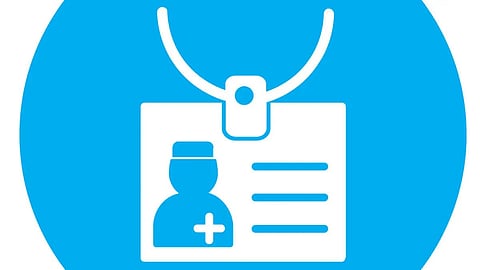As most services move to becoming digital, it is always useful to have your financial paperwork online. Keeping your financial data and paperwork at one place is now easy with the Reserve Bank of India’s (RBI) Account Aggregator framework.
Five Ways In Which RBI’s Account Aggregator Platform Can Smoothen Your Financial Paperwork
Reserve Bank of India’s Account Aggregator platform can help you store and access your data at one place, from where it’s accessible to both users and service providers
The account aggregator (AA) framework facilitates sharing of financial and other information on a real-time basis and in a data blind manner between different regulated entities. The data will be available to both the users and service providers through this mechanism.
In case you want to avail of the services, you will need to check with your service provider. If the provider is registered, you can give your consent. You can give your consent on the period you want your data shared on the AA platform.
More and more financial entities are joining this framework, which will enable you do synchronise your paperwork. The latest entrant was Union Bank of India, which became the first public sector bank to join the AA framework earlier this month. Even capital markets regulator Securities and Exchange Board of India (Sebi) announced recently that it will join the framework soon click here

“AAs enable seamless encrypted data transfer between financial information providers (FIPs) and financial information users (FIUs) without storing, processing or selling the data, hence eliminating any conflict of interest,” says Nikhil Kurhe, CEO, Finarkein Analytics, a data analytics company.
Here are five things AAs can smoothen for you by saving up on time and resources.
Five Use Cases of Account Aggregators
1. Managing Wealth: There are different types of financial assets, and people invest in them via various applications. An account aggregator platform, with the user's consent, can help consolidate all the financial assets-related data into a single readable document that can be shared with any service provider.
“What an account aggregator platform will do is pull through all these different asset data and compile them in a single readable format so that they can be shared with relevant financial institutions , and then a thorough analysis can be done without the need for physical statements of all these different assets. This can save up a lot of time and resources,”,” says Nageen Kommu, CEO and Founder, Digitap, a tech company providing AI-driven solutions for the banking industry.
2. Taking Loans: At present, for obtaining a loan, several documents like a bank statement, salary payslip, form 16, credit bureau report, and other documents are required to be processed by the lending bank.
“With the consent of customers, banks and other lending NBFCs can pull out the customer’s networth data, investments data and other financial data and using that along with the credit bureau report (if available) can provide a loan with a better interest rate since now they posses additional financial details like investments, assets, others of the customer,” said Nalin Agrawal, Director, Snapmint, an fintech NBFC which is live with the account aggregator framework.
3. Monitoring Spending: People often conduct small discretionary expenditures such as buying popcorn at the movie hall or travelling to work via taxi. These small expenses can add up to a lot over a period of time.
“Having a single-window viewing of all the financial data including expenses data aggregated from different banks at one place may help consumers get a better grasp on which items they are spending most of their income on and hence help them in better management of those,” added Agrawal.
4. Maintaining Health Records: AA can also help you keep all your health-related documents at one place.
Under the Ayushman Bharat mission, every Indian citizen will get a digital health ID card. Now when this health data will be linked with the AA platform, it can provide a consolidated view of both past and present health-related data of a user. “Health tech companies, diagnostic centres, hospitals, others can access their patient’s every health data (with their consent) in a single readable consolidated format and provide a faster and better diagnostic to the issue due to availability of more information,” added Kurhe.

5. Buying Insurance: Maintaining the health record can ease up buying insurance, both health and life. An insurance company needs to financially underwrite the policy bought by its customer, and this depends upon many factors like the customer’s family health history, past medical history, and others.
“With the consent of the user, all the data pertaining to health, medical record, present health conditions, salary information, networth information, and others can be aggregated into a single readable format. This can help the customers get better insurance premium quotations depending upon the data and also help insurance companies better underwrite the said policy,” says Kurhe.
Once all related entities are on it, the journey will become much smoother for individuals.